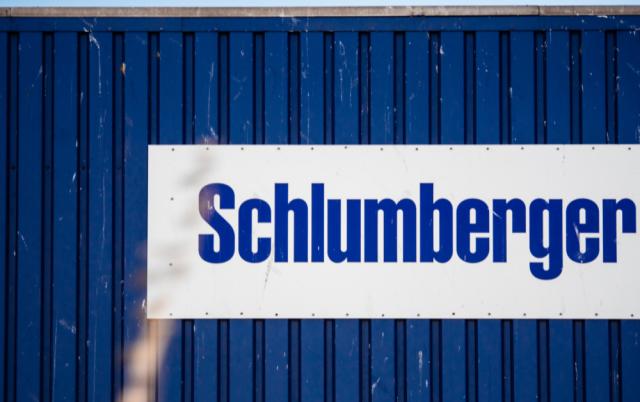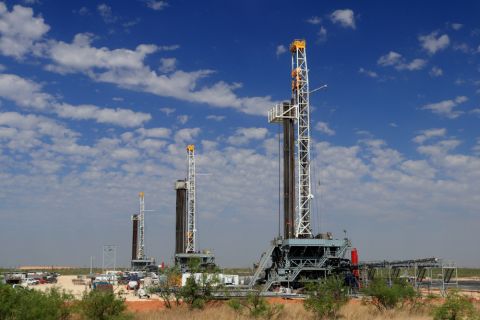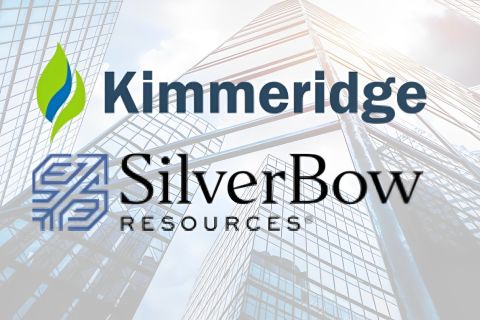
Schlumberger also launched its Transition Technologies portfolio on June 22 to assist its customers and the wider industry in their decarbonization commitments. (Source: Schlumberger logo by Hadrian / Shutterstock.com)
Amid an onslaught of net-zero commitments across multiple sectors, Schlumberger Ltd. laid out a decarbonization plan on June 22 that its CEO says puts the company—the world’s largest oilfield service provider—ahead of the competition.
“Our net-zero target is inclusive of total Scope 3 emissions; this is a first in the energy services industry,” commented Schlumberger CEO Olivier Le Peuch in a release from the Houston-based company on June 22.
In the release, Schlumberger made a commitment to achieve net-zero greenhouse gas (GHG) emissions by 2050 across the entire oil and gas value chain. The commitment also included a comprehensive near-term emission reduction roadmap on how the company plans to achieve its 2050 net-zero carbon emissions ambition with interim targets focused on reducing Scope 1, 2 and 3 emissions with minimal reliance on offsets.
Schlumberger’s decarbonization plan will not only address its operational emissions and carbon-negative actions, but customer emissions as well, which account for 75% of Schlumberger’s baseline GHG footprint, according to Katharina Beumelburg, chief strategy and sustainability officer for Schlumberger.
“To address this, Schlumberger has introduced our Transition Technologies portfolio, which is designed to help customers reduce their Scope 1 and 2 emissions, while simultaneously enabling us to meet our Scope 3 emissions target,” said Beumelburg, who joined Schlumberger last month from Siemens to lead oilfield service company’s growing focus on sustainability.
The Transition Technologies portfolio is comprised of proprietary technologies and solutions to address fugitive emissions, flaring reduction, electrification, well construction emissions and full field development solutions. To quantify the impact of these technologies, Schlumberger said it also developed a robust framework that enables standardization of measurement, benchmarking through net-footprint comparisons, and ultimately better-informed technology selection during planning.
Schlumberger said it is on track to achieve its previously set near-term emissions reduction target of 30% by 2025 for Scope 1 and 2, ahead of schedule.
Other interim targets introduced on June 22 include:
- By 2030, a 50% reduction in Scopes 1 and 2;
- By 2030, a 30% reduction in Scope 3; and
- By 2050, net-zero, with minimal reliance on offsets.
Schlumberger’s decarbonization plan is aligned with the Paris Agreement to limit global warming to 1.5 And is the result of extensive analysis guided by climate science and experts over the past 18 months, according to the company release.
“We have a 2050 net-zero carbon emissions ambition which I believe is unique in our industry due to our capabilities as a technology company and our culture grounded in science,” Le Peuch added in the release. “This reinforces our commitment to unlocking access to energy, for the benefit of all.”
Recommended Reading
Is Double Eagle IV the Most Coveted PE-backed Permian E&P Left?
2024-04-22 - Double Eagle IV is quietly adding leases and drilling new oil wells in core parts of the Midland Basin. After a historic run of corporate consolidation, is it the most attractive private equity-backed E&P still standing in the Permian Basin?
Occidental to Divest Some Permian Assets after Closing CrownRock Deal
2024-02-21 - Occidental CEO Vicki Hollub said plans to divest non-core Permian assets would come after closing the pending acquisition of CrownRock — but reports have since emerged that the company is considering selling its share of Western Midstream Partners, valued at about $20 billion, according to Reuters.
SilverBow Gears Up for Proxy Fight with Kimmeridge
2024-04-09 - Both SilverBow Resources and Kimmeridge Energy Management have proposed a slate of candidates for the board of directors with a vote set for May 21.
Brett: Oil M&A Outlook is Strong, Even With Bifurcation in Valuations
2024-04-18 - Valuations across major basins are experiencing a very divergent bifurcation as value rushes back toward high-quality undeveloped properties.
Marketed: Paloma Natural Gas Eagle Ford Shale Opportunity in Frio County, Texas
2024-02-16 - Paloma Natural Gas has retained EnergyNet for the sale of a Eagle Ford/ Buda opportunity in Frio County, Texas.




